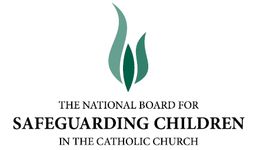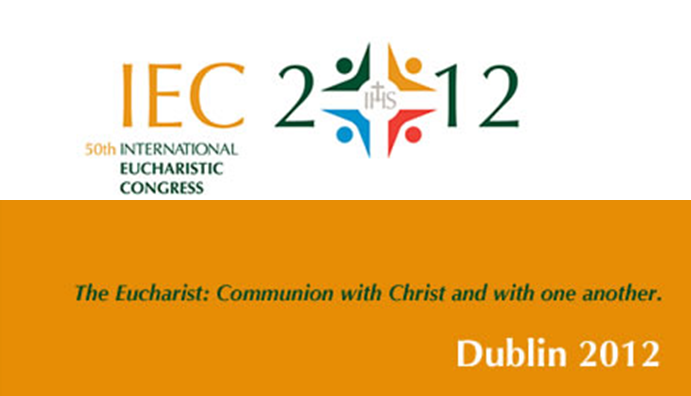
Electronic Newsletter – October 2011
Briefing on the work of the National Board for Safeguarding Children
Welcome to our second newsletter updating you on the work undertaken by the National Board since our last issue in July. It has been and remains a very busy time for us with many demands on the limited resources at our disposal. We have received a number of positive comments on the newsletter which you feel has been valuable in keeping you briefed on what we are involved in. This feedback is important for us and we greatly appreciate it. Since our last issue, the Board has welcomed two new directors. These are Monsignor Eamon Martin and Father Edward Grimes. Both are extremely able and experienced men who are very well known within the Church. They bring a wealth of knowledge and experience which we greatly value. We have also accepted the resignations of Father David Smith and Father Paul McCafferty from the Board. We would like to thank them for their diligent service as directors.
If you want to get any further information on any of the items contained in this edition or if you simply want to express a comment, please call the National Office or email me at [email protected].
Policy Update
Leave from Sacred Ministry
As stated in our last newsletter, the National Board does not have the authority to create policy. Our function is to recommend to the sponsoring bodies drafts which they may wish to adopt as policy for their constituency. To that end, we have proposed a draft policy for the management of allegations against a priest who is in ministry. This draft policy has been widely consulted on and had been accepted by the Liaison Group which was formed to act as a link with the Board for the sponsoring bodies. Their recommendation was for the draft policy to be adopted on an interim basis for a period of one year. Its operation would be reviewed and the matter would be looked at again next year. The representatives of two of the sponsoring bodies, namely the Conference of Religious and the Irish Missionary Union, had already indicated their satisfaction with the draft. It was presented to the recent meeting of the Irish Bishops when they met last month. They took the view that it was not yet ready for adoption and are currently preparing a paper containing their comments. When these are received we will address them and then resubmit the revised draft for consideration and agreement by all of the sponsoring bodies.
Safeguarding Vulnerable Adults
As you would be aware, in the extended guidance issued by the Congregation of the Doctrine of the Faith last summer, reference was made to individuals who have habitually impaired reasoning. The term Vulnerable Adult is one that appears within Northern Ireland State legislation but is not used within guidance issued by the Church. The development of state legislation within Northern Ireland has created greater urgency as regards clarifying how situations that involve harm to this group are handled. A position paper has been prepared and submitted to the members of Coimirce by the Board. A further complication stems from the fact that the remit of the National Board is set down within the Memorandum and Articles of Association of the Company. These do not extend to vulnerable adults and are solely focused on children and young people. We have always been and will remain committed to ensuring that we fulfil our remit as given to us. However, this matter is recognised as a pressing one which will be addressed. Canon 99 of the Code of Canon Law of the Church does offer some helpful clarification. This definitional canon explains that someone who habitually lacks reason should be regarded as an infant. The matter is still before the members and we will brief you on developments as they arise.
National Case Management Reference Group (formerly Advisory Group)
In the July newsletter details were given of our plans to establish a National Case Management Reference Group. Members of the Group are currently being recruited and we have already confirmed a number of dioceses and religious orders that wish to participate in the project. We plan to start the Group in November. Our intention is to run it for a period of a year on a project basis before deciding if and how its remit may be extended to include a wider number of Church authorities.
Additional Safeguarding Standards
Work on these is continuing and we are hopeful that they may be resubmitted to the members of Coimirce before the end of the year. Dr Monica Applewhite has contributed hugely to the development of these additional standards with the support of a group of volunteers who acted as a reference group for the work.
Notification of Allegations to the National Office
As you know, we have asked that all new allegations should be reported to the relevant statutory authorities without delay. We have also asked to be kept informed by being sent a notification of these new referrals. We designed a template for this purpose as set out in Resource 16 of the “Safeguarding children: Standards and Guidance”. Through this mechanism, an audit trail was established that would allow the Board to fulfil its remit to monitor practice. Legal advice has been issued that indicates that use of this form in its current format represents a breach of data protection requirements, when it is submitted to the National Board. We are currently working on a mechanism that will allow us to fulfil our remit without creating any vulnerability for any individual Church authority. We will keep you briefed on progress in this task.
Review of Safeguarding Practice in the Church
This is continuing with six dioceses and one religious order now completed. The terms of reference of the Review along with supporting information on methodology and procedure are available on our website, www.safeguarding.ie. It can be found in the download section. The intention remains to review each and every Church authority in a reasonable time period. All of those that have so far undergone the process have indicated their intention to publish the findings. We are now working towards publication of these six review reports.
The National Board would welcome requests from any Church authority that would wish a review to be scheduled for them. We are currently holding a number and will do our best to meet them in scheduling of our work.
Training Update
A full training programme has operated which has been co-ordinated by the Board. Last month Father Hugh Lagan ran two very successful workshops looking at impact of clerical abuse on victims and also the dangers posed by pornography on the internet. Both were full and the feedback from the attendees has been excellent. Father Lagan is an SMA priest who has worked in Saint Luke’s Institute in the USA. We also ran a workshop for newly appointed delegates with a further workshop planned for later in the month.
It is gratifying to confirm that the new training materials produced to support the development of safeguarding across the Church are at the stage of being printed. These will be supplied to registered trainers within the Church. A first step in the implementation of the new training will be the establishment of a “training for trainers” programme in each metropolitan area. Individuals have been identified to lead these and an induction day is planned for later this month.
We are seeking to update and revamp the website to make it easier to navigate and to access material. There are a number of excellent diocesan and parish websites that provide a very good model for us. We are conscious of the fact that our existing website is now dated and needs to be refreshed. I will keep you posted on progress in this task.
Ian Elliot
Chief Executive Officer




